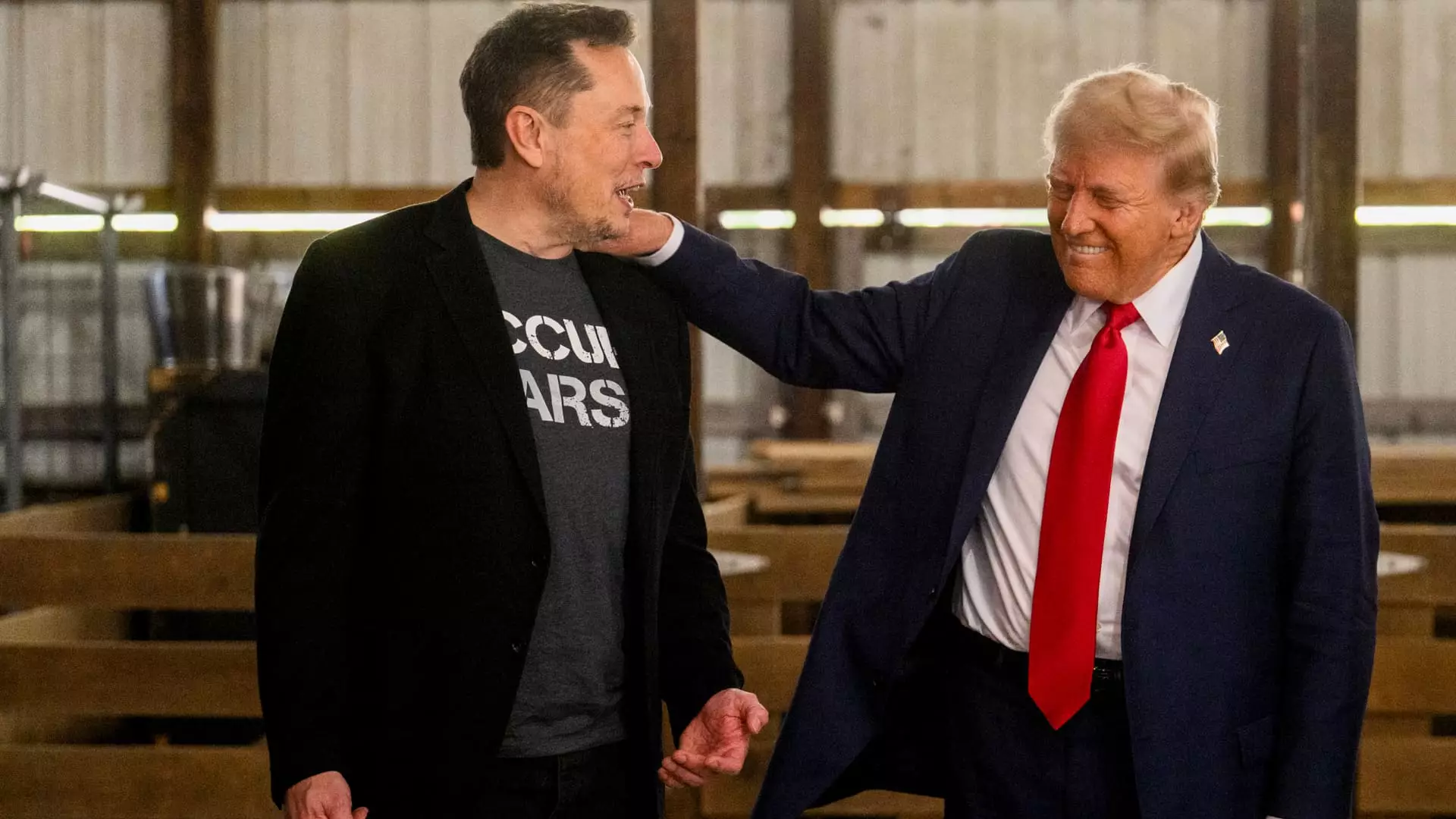In the ever-evolving landscape of American politics, the convergence of business magnates and political leadership has become increasingly prominent. A recent event epitomizes this trend: Elon Musk’s engagement with President-elect Donald Trump during a pivotal meeting with the House Republican conference in Washington, D.C. This gathering marks a significant chapter in Musk’s ascendant role within the sphere of U.S. politics, reflecting broader implications for governance and strategic reform.
A New Power Dynamic: Musk and Trump Unite
Elon Musk, the towering figure of technological innovation behind Tesla and SpaceX, traveled to Washington, D.C. on Trump’s private plane, highlighting a notable camaraderie between the two. As the world’s richest individual, Musk has been a crucial supporter of Trump’s campaign efforts, and this meeting underlines his growing influence within the Trump administration’s inner circles. By positioning himself alongside Trump in critical discussions, Musk signifies a shift in how billionaire entrepreneurs can impact political direction—where traditional boundaries between business and governance increasingly blur.
This partnership emerges in the context of significant political shifts, as the Republican Party prepares to exert its influence in a new Congress. Following a decisive electoral victory, which saw a swing toward Republican candidates and a potential retention of House majority, the dynamics within Congress are poised for transformation. Musk’s involvement coinciding with this political maneuvering positions him not just as a business leader but as a potential architect of policy reform.
During this assembly, Trump announced the formation of an external commission called the “Department of Government Efficiency,” co-led by Musk and entrepreneur Vivek Ramaswamy. The initiative aims to dismantle bureaucratic obstacles and introduce regulatory cuts, signaling an intention to streamline government operations. Musk’s declaration that the initiative would “send shockwaves through the system” encapsulates a bold vision for tackling the inefficiencies within federal governance.
Such an endeavor raises questions about the role of private sector leaders in public policy development. Historically, the interplay between business interests and government efficiency has been complex, often leading to tensions over the balance of power. Musk’s direct involvement suggests a willingness to leverage his business acumen in the public sector, but it also poses potential risks. The challenge remains: can a business perspective effectively navigate the nuances of public interests and democratic oversight?
As the political landscape shifts, the upcoming meeting between Trump and President Biden reflects a commitment to a peaceful transition of power, a core tenet of American democracy. Notably, the 2020 election saw tensions surrounding concession processes, but the current administration appears poised to foster a cooperative relationship moving forward. Vice President Kamala Harris’s concession on the day after the election reinforces the urgency to embrace dialogue and collaboration amidst political rivalry.
However, underneath this façade of unity lies a contorted narrative filled with political posturing and media scrutiny. The absence of former First Lady Melania Trump from Wednesday’s proceedings reflects not only a personal decision but perhaps a broader commentary on the Trump political machine. Her office’s statements resisting media narratives showcase the ongoing battle between political actors and public perception in an era dominated by misinformation.
The intersection of business and politics heralds a new epoch in governance where entrepreneurial leaders like Elon Musk play a pivotal role in shaping national policy. As Musk steps into this prominent political position alongside Trump, the implications for future administration strategies become increasingly profound. While the potential for transformative change exists, the risks associated with intertwining commercial interests with government functionality cannot be overlooked. Ultimately, the coming months will be crucial in determining whether this alliance can yield substantive advancements or merely serve as another chapter in the spectacle of American political theater.


Leave a Reply